Continuing from my last post on uplifting travel stories, here are a few more that will make you believe that people are good everywhere and restore your faith in humanity.
Thank You For You!
One of my first solo travels abroad was to Morocco. I spent three weeks volunteering at a women’s empowerment center in the capital city of Rabat. My assignment was teaching conversational English to anyone who wanted to learn. Since there was no formal structure, I made the lesson plans, and delivered them alongside one other instructor. Often times, I would come up with creative ways to engage the students by talking about Moroccan food, weddings, places to visit, etc. Now that I think about it, I myself wanted to learn about these things.
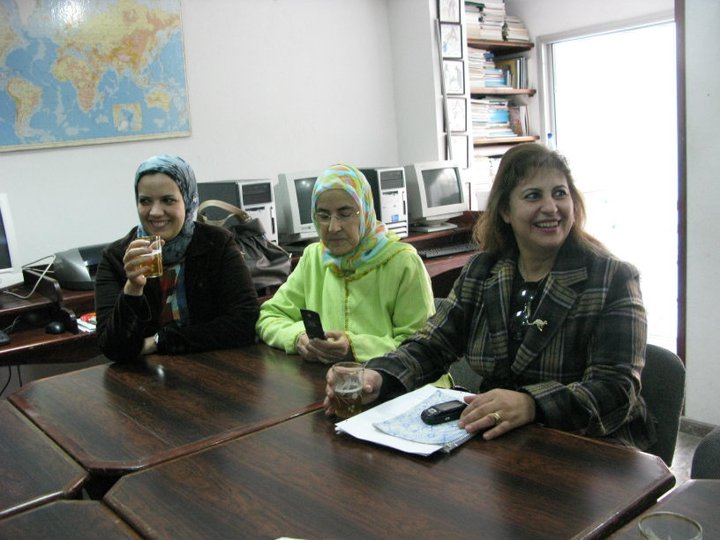
My students were 18-70 year old women and only one male. Though it was a “women’s” empowerment center, men were allowed to attend classes for free as well. The reason these people enrolled for English lessons also varied – some wanted to get ahead in their careers, attend an international conference, or travel abroad, others simply wanted to watch the television show “Desperate Housewives” in its original format!
In terms of their English proficiency, the students were all over the map, from beginner to advanced. Most of my students attended class every day for the time I was there, but most likely had periods of discontinued learning.
So for three weeks, we spent a few hours laughing, learning and sharing. The women would show me their wedding photos, while I would encourage them to explain traditions involved in a Moroccan wedding to me in English. They would write out family recipes in English and hand them over as homework assignments. They did a presentation about the best weekend destination getaways around Morocco and how to bargain at the souk (market).
On my last day at the center, the students threw me a farewell party, which came as a surprise. No staff person had instructed them to do so, it was purely the students initiative. When I arrived in class that day, a table was set up and chairs moved into a circle. There were homemade cookies, fresh brewed mint tea, presents and notes.
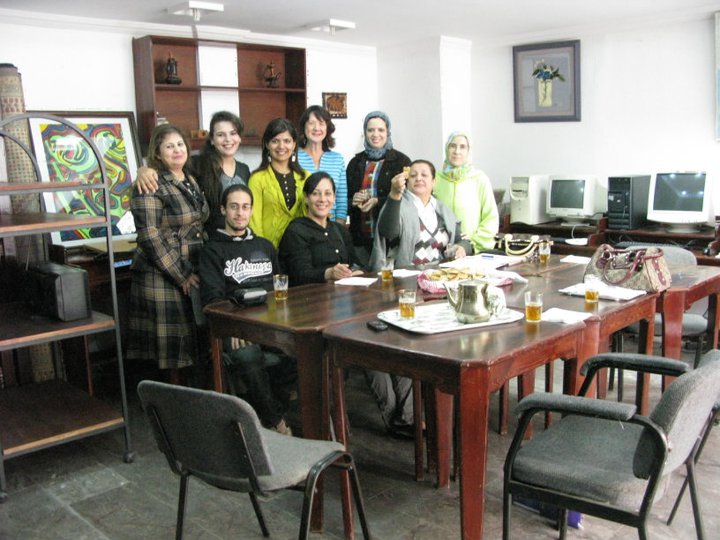
Needless to say, I was deeply moved by their gesture. Though their English proficiency had not drastically improved through my teaching, their faith in humanity had. They asked me why I took my precious vacation time, spent my own money to travel all the way from USA to Morocco, only to teach English to these strangers who I had never met before? It sounded like a bizarre idea, but they thanked me for it. As we had our last conversations around the table, they turned to me in their broken tenses and said, “Thank you for you!” I don’t know if they meant thank you for being who you are, or simply thank you, but it stuck in my head, and nine years later, I am still sharing this heartfelt story.
Your Home Is My Home
Couple of years ago, I was invited by the US Embassy in Bucharest, Romania to represent USA at one of the biggest book festivals in Europe. I stayed a few extra days to explore the rest of the country with a female run tour company – My Romania.
Ramona was the the proprietor and guide for My Romania. She and I spent a week together, driving the northern and western parts of Transylvania in her SUV. On our first day, she picked me up from Cluj-Napoca airport and we headed to a small village in Maramures.
We checked into a family-run B&B in a village named Hoteni. All I could see on our way there was vast agriculture lands, hay stacks, farm houses and narrow roads. When we passed the old wooden gates (typical architecture of this region), and entered the grounds, there were two houses on either side of the lawn, as well as a farm in the back. I was the only guest staying at the guest house, while the owners lived in the other structure.
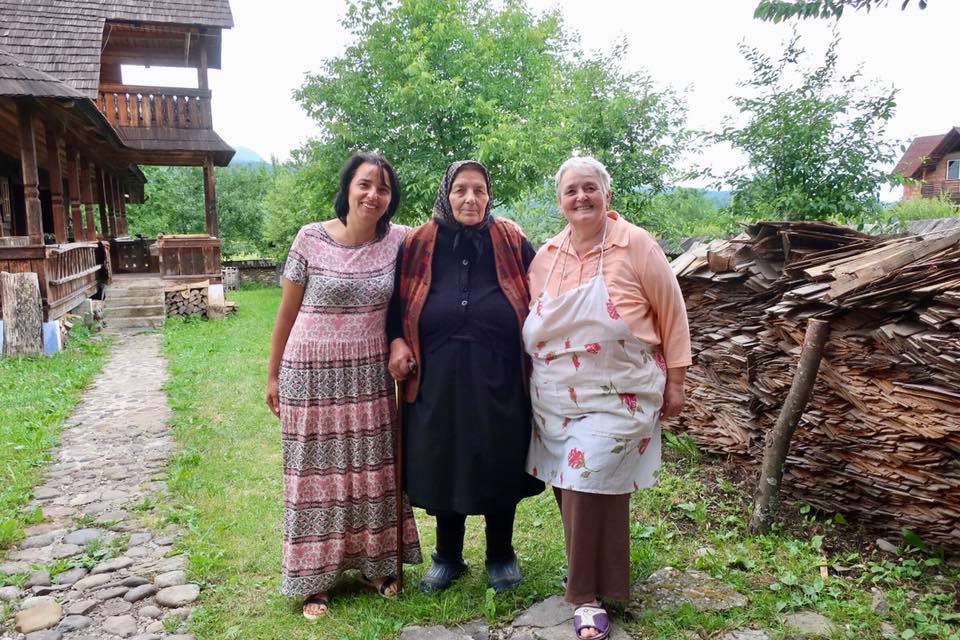
Over the next few hours, I met a Romanian lady, Ana Pop, who owned the place. She and her husband were famous singers/ musicians who recorded albums and performed internationally. They ran the B&B as a side business, mainly to host their friends when they were visiting Romania.
The Pops extended families also lived down the street. One of Ana’s sisters cooked breakfast and dinner for the guests. Another sister, who lived down the road, stopped by to “check in” on the latest arrival. With not many things to do in the sleepy village, news of anyone visiting traveled quickly. Soon, people were dropping by with fresh cut roses, cherries from their backyard trees, and bottles of local wine.
Ana and her sister didn’t speak much English, so Ramona translated our conversations. We sat on traditionally woven carpets that covered every inch of the poorly ventilated wooden home, sharing stories, and laughing for hours. Ana showed me her photos performing in every part of the world. When I insisted, she sang me some songs from her album. Her voice was beautiful! The sisters dressed me up as a traditional Romanian bride and took photos of me around their house. The clothing brand Anthropologie had done a photo shoot here so I pretended to be a model. We all had so much fun!
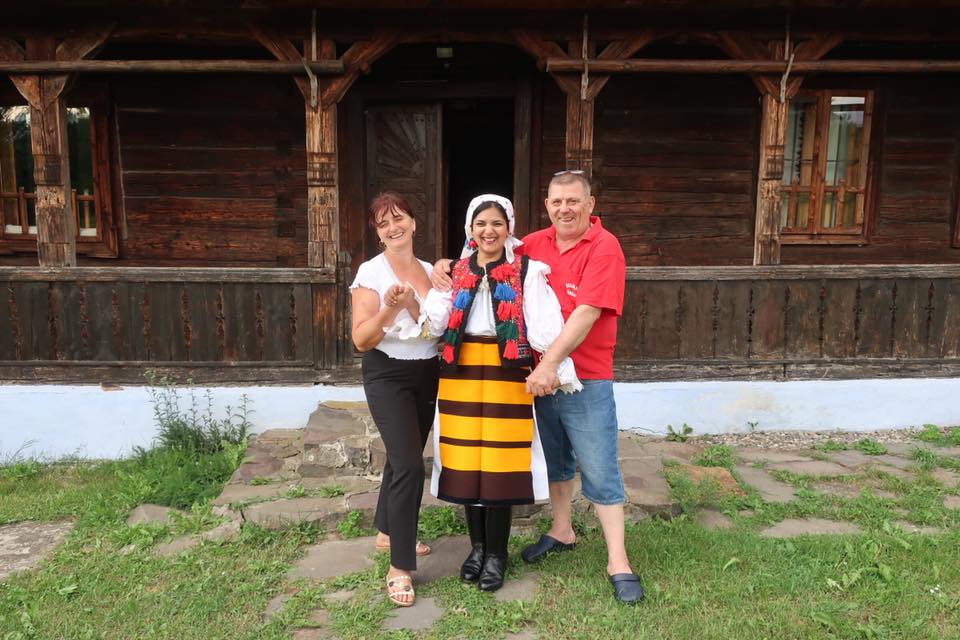
After dinner, one of the sisters, Ileana, asked me if I wanted to visit her house. I only understood this through Ramona’s translation. I accepted her offer and went with her alone in her car. Neither of us spoke the same language. We didn’t have a translator. But the language barrier wasn’t as big of a challenge as you may think.
A few minutes later, we arrived at her place. Ilena lived alone in her family home in the same village. Her husband has passed on and her adult kids worked in the big city. She split her time living in the city and the village. I understood all of this without translation. She took me inside and showed me her white lace textiles and woolen rugs. These are considered prized possessions among Romanian women, and often passed on through generations. On a pleasant summer evening, we walked in her beautiful garden filled with fruit trees and flowers. I understood that gardening was one of Ilena’s hobbies. She plucked a prized red rose and handed it over to me, “as a gift,” she said, with sparkles in her eyes.
Then she took me around the house to show me where she kept her spare keys. She explained to me that I could return to Romania anytime, take the keys and stay at her place even when she wasn’t home. She asked me to bring my husband to Romania next time and consider her place to be my own.
Ilena and I had met for the first time only the day before. We didn’t communicate much verbally, but bonded with our hearts. In just a few hours, she trusted me so much that she offered me her home. Such is the power of a human connection.
Ileana and I still keep in touch through Facebook. She messages me in Romanian, I reply back in English. Sometimes I use Google Translator to write longer sentences. But between Emojis, GIF’s and photos, we seem to convey our feelings to each other. Someday, I plan go back to Hoteni and use my spare key.
A Driving Angel
I flew from New Delhi, India to Kathmandu, Nepal for a 10-day volunteer vacation with Volunteers Initiative Nepal. The organization helps villages in remote areas of Nepal with various initiatives such as education, women’s empowerment, infrastructure building, sanitation and more. Their coordinator had arranged for an airport pick for me.
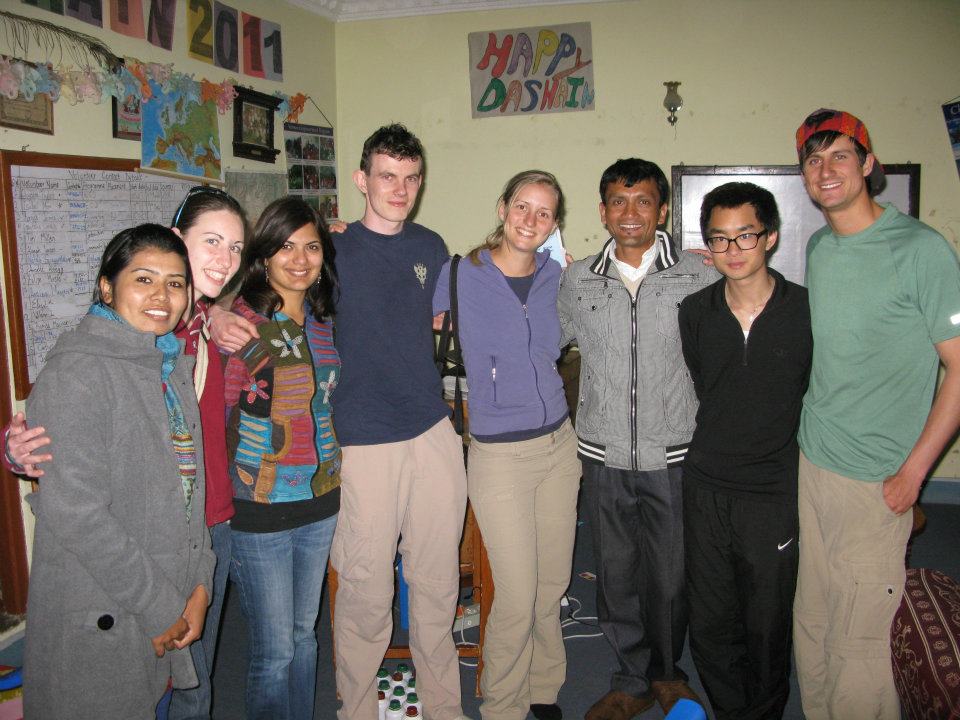
On my arrival, Danish, my driver, was waiting at the airport with a sign that had my name on it. In an old battered car, we drove toward Thamel, the heart of Kathmandu City, which was going to be my home for several days. On the way, we saw dirt roads, broken street lamps, and almost no traffic lights. There were traffic jams, incessant honking, chaos all around – similar to India, but worse. Nepal looked like what India would have 30 years prior – without roads and rules.
After dropping me off at my budget hotel, Danish gave me his cell phone number (he had an old flip phone) and told me he would pick me up the following day to take me to the office for orientation. But if I needed anything in the meantime, I could call him as well.
In just a few hours, I started coughing violently, possibly due to the pollution in Kathmandu Valley. Though Nepal has some of the world’s tallest mountains and vast open ranges, the valley traps in heat, exhaust and pollutants in a densely populated city.
The next day, when Danish came to get me, I asked him to take me to a pharmacy. He helped me purchase a mask, antibiotics and nasal spray. That helped somewhat, though I ended up developing fever and cold as well.
Still, I continued to take breaks and work for few hours each day, visiting villages and projects. One afternoon, Danish drove me to Nagarkot, a village at the rim of the Kathmandu Valley known for its views of the Himalayas, including Mount Everest. The higher altitude would do me good, he suggested. On our way back, we stopped at a rest stop for samosa, chai and mo-mos.
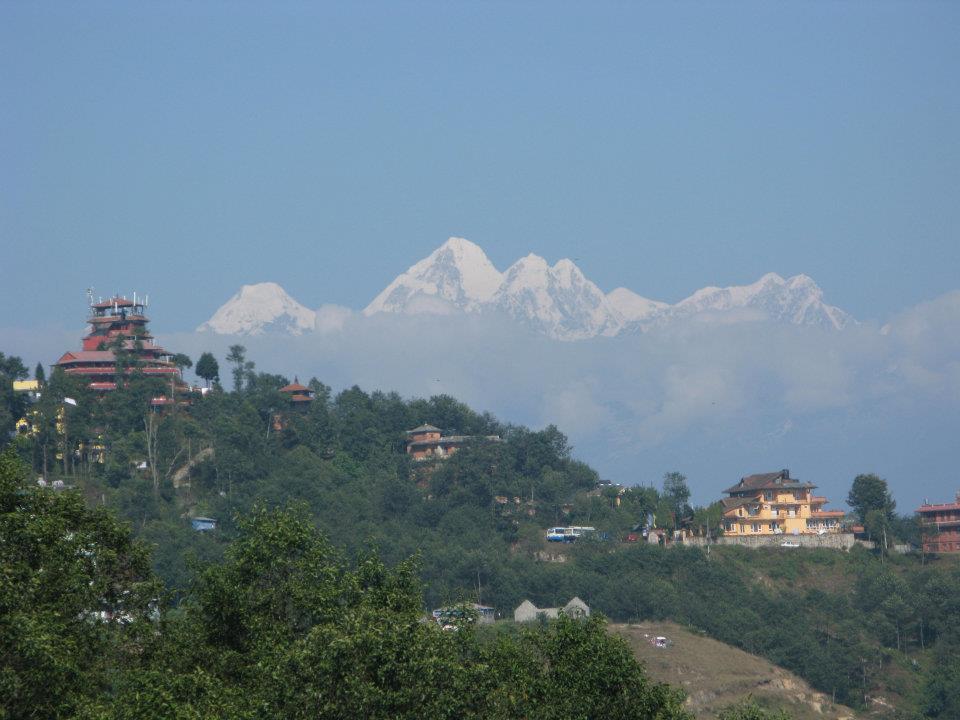
We had interesting conversations during our long drives together. We talked about our families, cultures (how Indian and Nepali are similar but different), religions, hopes for education, peace, and much more.
One day, Danish came to me apologetically. He said he won’t be able to drive me tomorrow because he had to travel to another village for his sister-in-law’s wedding. It was a remote location and he probably wasn’t going to have cell service there either. He promised to return the following day though, so as not to inconvenience me. I assured him that I would be totally fine taking a taxi (which are super cheap and safe in Kathmandu) and that he should enjoy the wedding for as long as needed. “No need to rush back,” I said.
When I lay in bed that evening, I received a call from Danish. I was alarmed because I knew that he would have been engaged at the wedding around that time. “Is everything allright?” I asked him. He said that he felt really bad about leaving me alone in Kathmandu, so he stepped out and went to a pay phone in the village to check on me. Because I was a guest in his home country, he wanted to make sure I was well looked after. And he felt guilty that he was attending to personal needs over professional duties.
Even though, I don’t think he could have done anything from miles away, Bhumi was more concerned about my comfort than his family wedding. I thanked him and told him to have some laddoos (sweets) on my behalf.
You’ll can find verified coupons at websites such as RetailMeNot, DealsPlus, Coupon Cabin, and The The Hindu Coupons. They also have free codes and deals that can be used to save money on almost any item.
Did these travel stories help you restore some faith in humanity?